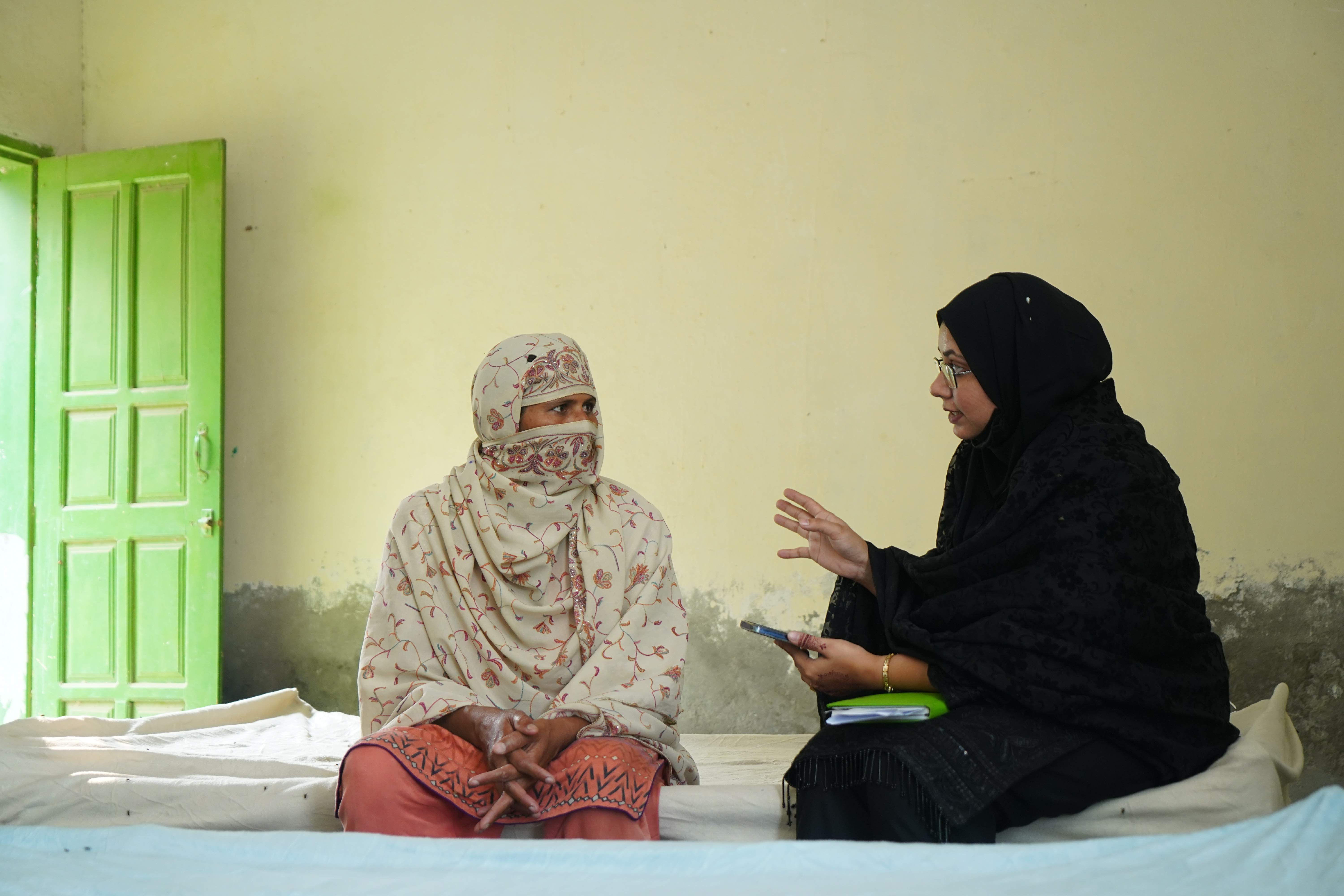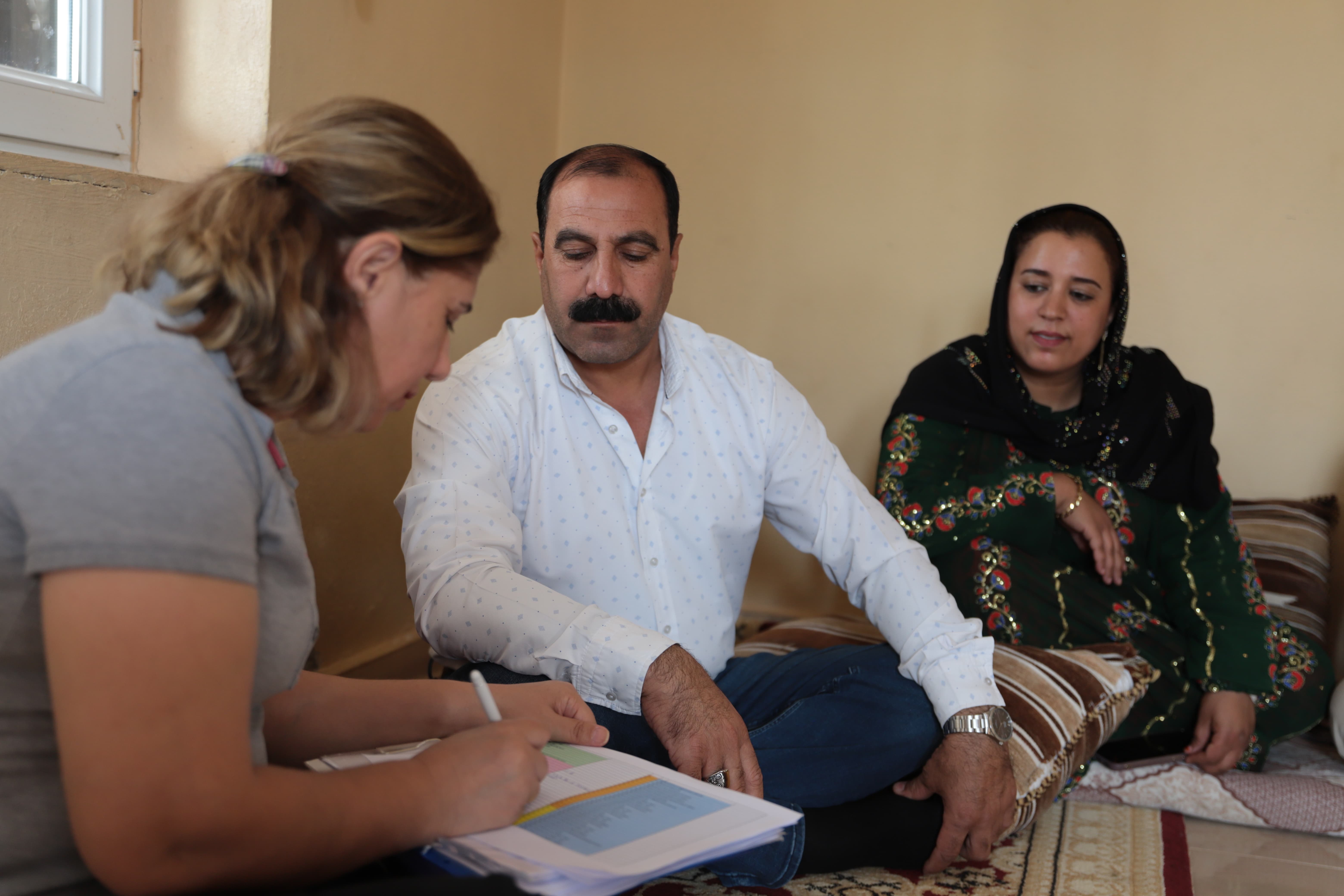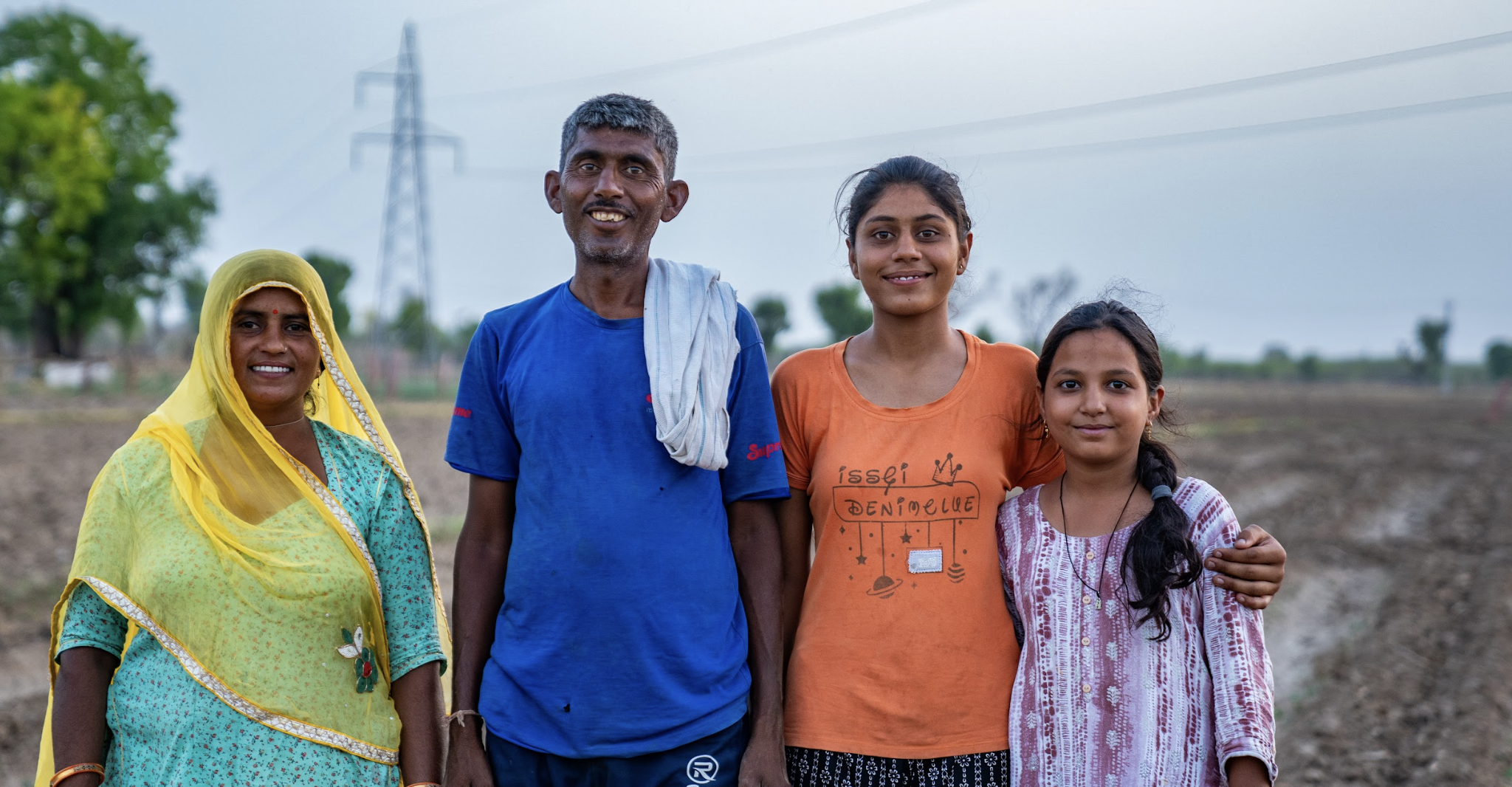back
back
our impact
01
Farmers First: Strengthening Livelihoods, Resilience and Knowledge
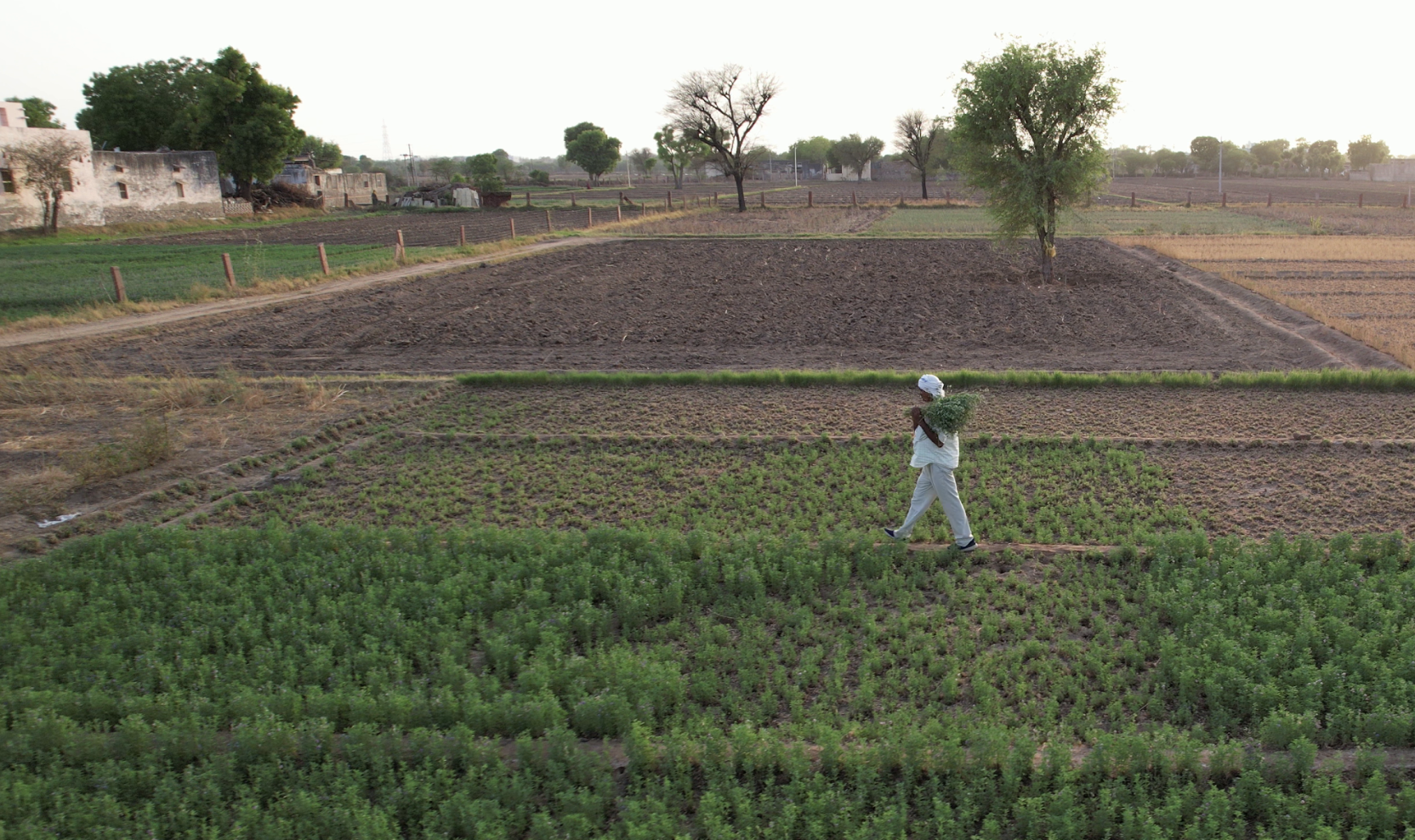
Farming communities are at the heart of OCA’s mission and the foundation of a sustainable organic cotton sector. Transitioning to organic and regenerative practices is knowledge-intensive and requires access to key inputs and support. Likewise, adopting decent work practices demands clear guidance and resources. Through these practices, resilience is built by improving soil health, reducing input costs, diversifying income, and ensuring safer, fairer working conditions—making farming more secure, adaptive, and sustainable over time.
Better incomes, stronger markets
In 2024, we onboarded over 100,000 farmers, a new milestone for OCA. We welcomed new groups of farmers from India, Pakistan and Türkiye to our Farm Programme. Creating reliable offtake and support for these farmers is essential to expanding a transparent, responsible supply chain. Out of the farmers we worked with last year, 36,000 were in-conversion farmers. OCA farmers earned, on average, an 8% premium per kilogram of seed cotton above market price—a necessary incentive for their commitment to organic farming. In 2024, OCA farmers produced over 47,000 tonnes of lint cotton, up from over 36,000 in 2023.
OCA’s Farm Programme expanded to include 18 brands, 14 Implementing Partners (IPs), and six Seed Partners. By the season’s end, participating brands had procured 92% of the available organic cotton produced at a higher price. At the same time, only 58% of in-conversion cotton was purchased against premium prices, highlighting the need for greater industry support. In-conversion farmers are key to building a reliable organic cotton supply chain, and their efforts require stronger backing.
OCA’s model ensures that market actors are directly linked to farm groups, creating pathways for brands to secure traceable cotton while investing in impact. Through offtake commitments and premium payments, brands offer farmers a more secure business case to go and stay organic. OCA farmers earned an average total profit of €2,110 per hectare from all crops, including organic cotton, 8% higher than conventional farmers. OCA facilitated over €4,760,000 in premium payments in 2024.
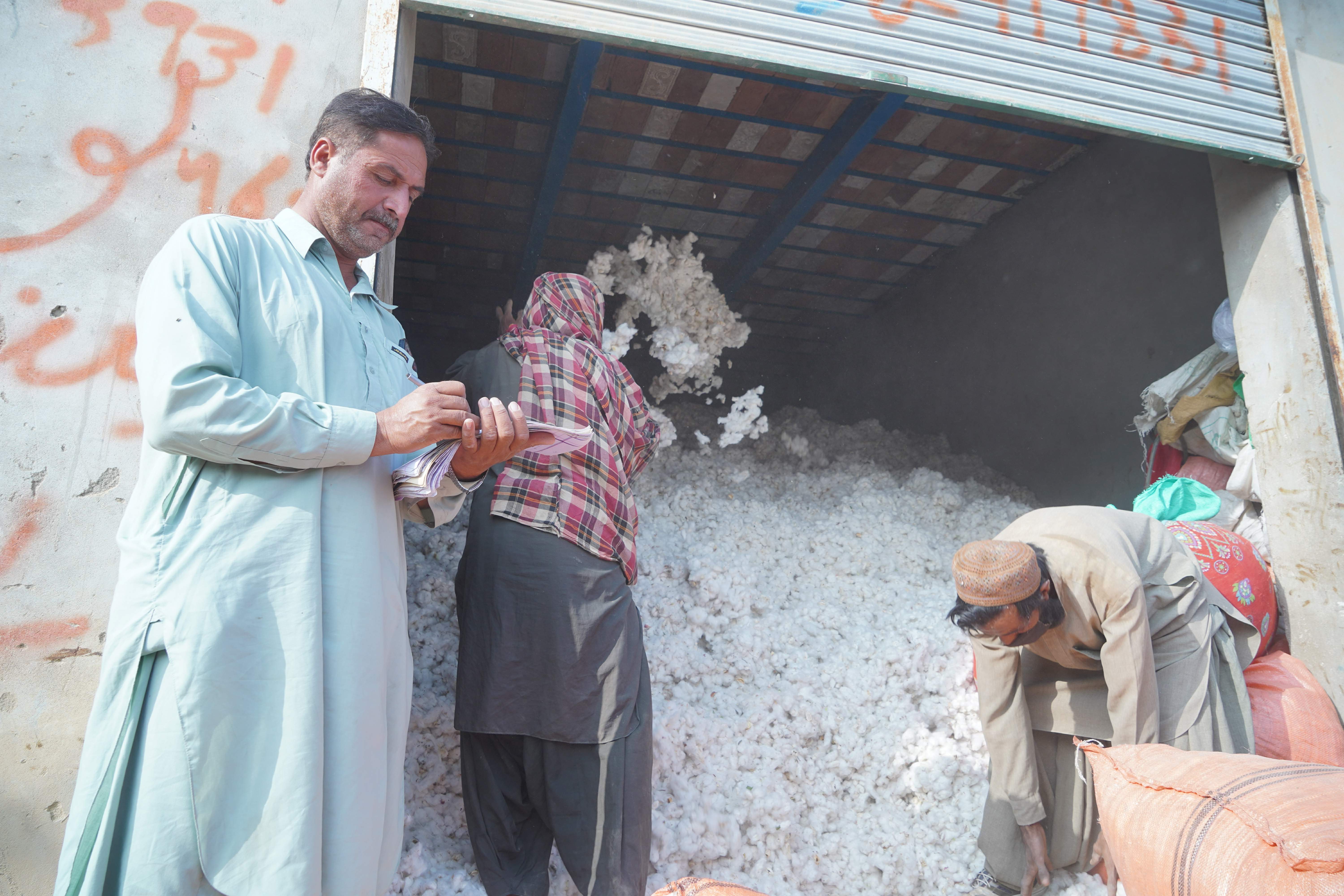
Building knowledge, growing confidence
Organic farming is knowledge-intensive, and OCA is deeply invested in building farmer capacity through high-quality training and tools. In collaboration with our IPs, we deliver hands-on education where it matters most: in the field. Our “train-the-trainer” model ensures that local field teams are equipped with the technical knowledge and teaching skills to transfer best practices directly to farmers. In 2024, we held nine “train-the-trainer" sessions across both India and Pakistan. They served as dynamic platforms for peer learning among the 20 IPs who participated in them.
This commitment to experiential learning also extends to our demonstration farms (a farm specifically set up to showcase agricultural practices, innovations, or technologies to farmers) and seed trials. In 2024, we supported over 442 demonstration farms and 87 seed trials, offering farmers real-world exposure to regenerative practices and seed varieties. These plots allow farmers to see results firsthand and make informed decisions about their own cultivation techniques and seed selection. This was made possible thanks to the support of the Regenerative Fund for Nature, among others.Our farmer training programme spans an entire season, with modules covering 20 key practices in regenerative and organic agriculture. By investing in continuous learning, we help farmers not only improve their yields and income but also build long-term resilience in the face of climate and market uncertainty.
A key future development in our capacity building efforts will be the launch of the Organic Cotton Training Curriculum (OCTC) for Türkiye, designed to strengthen local capacity and technical knowledge in one of the world’s most important sourcing regions. This builds on our previous OCTC versions tailored for India and Pakistan.
Hear from our Contributors
Tamar Hoek
Senior Policy Director
For Cotton and Textile Solidaridad
Ashis Mondal
Founder and Director
Action for Social Advancement
Advancing decent work in organic cotton farming
In 2024, we launched our Decent Work Strategy, a pivotal initiative aimed at improving working conditions and protection for organic cotton farmers, farm workers, and their communities. Over the next six years, OCA will work to address persistent challenges in the cotton sector, including the need for living income and wages; eliminating unlawful child labour, bonded and forced labour; improving health and safety on farms; ending discriminatory practices; and providing access to social protection and worker representation.
Following a pilot with selected IPs, we rolled out a new Decent Work training module across more of our network, a key component in our efforts to support better working conditions in organic cotton farms. The training module will be supported by ongoing investments in awareness, monitoring, and capacity-building.
The role of digital payments
Digital transactions accounted for 40% of payments to farmers for their cotton during the last season, improving transparency, efficiency, and farmer financial empowerment.Expanding digital payments for farmers remains a key priority for OCA. Digital transactions drive financial literacy, allow faster, direct payments, and improve farmers' access to subsidies and loans. They also offer better traceability and accountability.
